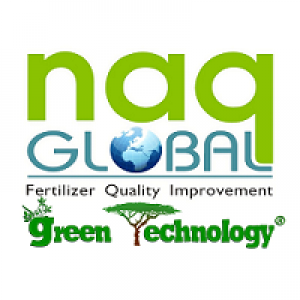
Naqglobal
Uploaded on May 23, 2025
Category
Environment & Nature
Before the phosphate rock can be made into a useful fertilizer, it must first be properly extracted and refined. Raw phosphate rock contains contaminants such as clay, silica, and organic materials. The important task for this industry is to efficiently extract and purify phosphate so it can be utilized to produce top-quality fertilizers.
Category
Environment & Nature
The Role of Flocculants & Flotation Agents for Fertilizer Production
The Role of Flocculants & Flotation
Agents for
Fertilizer Production
Before the phosphate rock can be made into a useful
fertilizer, it must first be properly extracted and refined. Raw
phosphate rock contains contaminants such as clay, silica,
and organic materials. The important task for this industry is
to efficiently extract and purify phosphate so it can be
utilized to produce top-quality fertilizers.
Materials used for the separation of valuable minerals during
the production of fertilizer are flotation agents and flocculants.
Such agents appropriately separate phosphate minerals from
waste materials. This guarantees that phosphoric acid
producers receive feedstock of superior purity. As a result,
the overall yield increases during the process. At the same
time, it reduces waste and promotes increased sustainability.
As a result, these agents are essential for the producers of
phosphoric acid since they ensure the provision of clean
phosphate materials for the production process.
1.Efficient Separation of Impurities:
These agents are integral to phosphate beneficiation as they
facilitate the separation of phosphate from other components.
Flocculants cause smaller particles to stick to each other.
This makes it faster for them to settle out. On the other hand,
flotation agents attach to undesired minerals like quartz and
clay. So, they allow for their removal during the air flow
process. The two combined techniques significantly enhance
the purity level of extracted phosphate.
2. Increasing Phosphate Recovery with Difficult
Sources:
Many of the world’s phosphate deposits contain relatively low
amounts of phosphate. Most phosphate reserves around the
world contain low concentrations of mineral matter and
therefore necessitate the use of chemical assistance in their
extraction. Flotation agents for fertilizers help producers
to extract more and more phosphate rock from low- grade
minerals. This enables hitherto unworkable deposits to be
economically extracted. This cuts down the overall amount of
mining required. An increasingly important challenge is to
maintain high product selectivity with minimal losses.
Achieving high performance for selectivity towards the
targeted compound requires careful chemical balancing. NAQ
Global’s experts have rich experience in optimizing flotation
processes around the world.
3. Improved Product Consistency:
Consistency in phosphate concentrate helps the entire
production run more efficiently. Stability in slurry properties
is ensured with flocculants, which maintain uniform density
and flow for optimal processing. Consistent granules
produced from the fertilizer manufacturing process lead to
greater consistency and better quality in the final product.
4.Enhanced Phosphoric Acid Production:
Improperly purified phosphate ore poses challenges for the
phosphoric acid producers. The presence of iron, aluminum,
and magnesium substantially decreases the efficiency of the
acidulation process and
makes it harder to achieve a clear filtrate. Well-chosen
flotation agents result in better quality and more uniform
phosphoric acid production.
5.Cost Reduction Through Chemical Efficiency:
Improved flocculants and flotation agents help minimize both
energy and water use during separation. Minimizing
mechanical interventions and reducing the number of
processing steps helps fertilizer plants increase productivity.
Achieving chemical efficiency leads to reduced expenses and
increased profit for the manufacturer.
6.Supporting Diverse Fertilizer Types:
Beneficiated phosphate is utilized in traditional fertilizers.
They are also used in multicomponent blends and minerals-
dense fertilizers. Reliable quality in the raw material plays a
key role in achieving these results.
Effective flotation agents for fertilizers make it possible to
produce phosphate concentrate that complies with the
diverse characteristics needed for a range of fertilizers.
Conclusion
Flocculants and flotation agents for fertilizers are essential
for fertilizer production. They help achieve effective,
economical, and environmentally responsible production of
fertilizers.
Flocculants and flotation agents improve ore beneficiation.
They also lessen pollution and preserve the superiority of
phosphate concentrates. So what do these agents offer in a
competitive and environmentally conscious market? Well, it’s
both performance and sustainability.
Source Link: https://www.techarrives.com/the-role-of-
flocculants- flotation-agents-for-fertilizer-production/

Comments